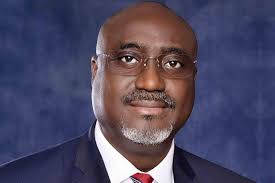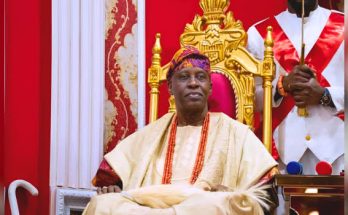The Court of Appeal in Abuja recently faulted the judgement of the Federal High Court which faulted the powers of National Assembly to alter sequence of the 2019 general elections.
In this piece, KEHINDE OSASONA revisits the legal brawl
The debacle Sometimes in March this year, President Muhammadu Buhari declined assent to the National Assembly’s amendment of the Electoral Act, 2010, citing the inclusion of a clause which provides for sequence of elections.
In that amendment, the lawmakers put the National Assembly election ahead the presidential poll.
The controversial provision in the said bill sought to alter the sequence of the presidential, governorship, the federal and state legislative Houses’ elections.
The earlier judgement Justice Ahmed Mohammed of the Federal High Court, Abuja had, in a judgment on April 25, this year, upheld a suit by Accord Party, to the effect that the National Assembly attempted to usurp the exclusive power of the Independent National Electoral Commission by seeking to dictate the sequence of elections Mohammed held that “only the Independent National Electoral Commission (INEC) had the powers to create an election template for the country.” The Judge also ruled that any attempt by the National Assembly to amend Section 25, as done by the legislature, would first require an amendment of the constitution.
Consequently, the FHC voided the elections’ sequence provision of the Electoral Act (Amendment) Bill, 2018.
Assent withheld But faulting the decision, the president, in a letter to the National Assembly, said the legislature’s action violated the 1999 Constitution, as amended, and noted that only the Independent National Electoral Commission can set the order of elections in the country.
Specifically, the president explained that he refused to comply with the signing of the bill because it did not align with Section 58 of the 1999 Constitution, particularly subsection 4.
The bill, which was presented by Senator Suleiman Nazif, passed first reading at plenary when the House of Representatives re-introduced its version, after the joint leadership of the National Assembly resolved to harmonise position on the contentious amendment bill.
A frightening dimension But it still remains unclear what further legal steps the Presidency would take as per the new development, even as it appears that it is yet to recuperate from the shocking pronouncement by the court.
In the verdict, the appellate court, headed by its President, Justice Zainab Bulkachuwa declared: “The judgment of the lower court is consequently nullified as the legislature has the right to carry out its legislative functions without any hindrances.” Affirming further, the court gave the go-ahead to the National Assembly to proceed with the process on reordering of the election.
While upholding the appeal that was instituted by NASS, the Bulkachuwa-led panel stressed that a Bill did not automatically become an Act of the NASS until assented to by the President.
The judge, however, held that the constitution gave the President the right to decline his assent to a Bill, following which such document would be returned to the NASS for further legislative action.
She said no court had the constitutional backing to truncate legislative process, adding that the decision of the lower court was full of error.
“A court of law has no jurisdiction to decide on a Bill still undergoing legislative process.
Such decision becomes null and void since it is not yet a law or an Act of NASS.
“The court cannot grant an injunction to restrain the legislature from performing its legislative duties.
“It should, however, be sounded clear that the court has the jurisdiction to strike down any law or Act of the NASS when found to be in contravention of any Sections of the Constitution,” the court further held.
According to her, the suit by Accord Party was an action designed to obstruct the legislative powers of the NASS to make law.
It further observed that as at the time the suit was filed at the lower court, the assembly had yet to conclude its legislative duty as far as Amendment of the Electoral Act 2018 was concerned.
Continuing, the Justice Bulkachuwa noted that “the plaintiff’s locus standi in this case has not yet been disclosed.
A claimant must have some justifiable interest that would suffer or show that he has an injury or damage to suffer.
“I am satisfied and I hold that this 1st Respondent’s action at the lower court was not justiceable.
“The suit was an academic exercise that did not raise any live and genuine issue in controversy for determination.
“The suit is frivolous and clearly an abuse of court process.
I resolve the issue in favour of the Appellant.
“The judgment of the Federal High Court delivered on April 25 is hereby nullified.
“On the whole, this Appeal succeeds, it has merit.
The judgment of the high court is hereby set aside.” Implications Meanwhile, as the stakeholders continue to grapple with the implication of the judgment, Senate President, Bukola Saraki, who recently defected from the ruling All Progressives Congress, has praised the judgment.
Saraki, in a statement by his special adviser, Media and Publicity, Yusuph Olaniyonu, penultimate week described the judgment as essential, saying that in order to test the laws in court, there should be judicial interpretations on contentious issues.
“By doing so, we will be expanding the scope of our laws, sharpening the rough edges of legislation and asserting our faith in the judiciary as a fundamental arbiter,” he said.
Revisiting jurisdictional right Reacting on the court judgment, the Deputy Speaker, Yussuff Lasun noted that by the court pronouncement, it was clear that the parliament cannot be gagged in the discharge of its constitutional duty of lawmaking.
Meanwhile, the Senate President, Bukola Saraki and Speaker, Rt. Hon. Yakubu Dogara, it would be recalled have jointly reacted to withholding of assent by President Muhammadu Buhari on the Electoral Act Amendment Bill.
According to a statement which reads: “The Senate President and the Speaker, as heads of the two chambers of the National Assembly and representing the views of their colleagues, will want everybody to know that they are on the same page on what is the appropriate reaction to the President’s withholding of assent on the Electoral Act amendment bill, the two helmsmen reiterated their collective agreement and stance on the controversial election sequence bill.
“The issue at stake is not personal.
It is about deepening democracy.
It is about improving our democracy and the National Assembly is on firm constitutional and legal grounds to amend the law as well as take decisions in the manner they have been responding,” the statement added The question is, with just less than 200 days to the poll, it is believed that everything must be done to do all things humanly possible to ensure that this and other legal encumbrances in the way of 2019 are quickly removed.
Blueprint gives you the latest Nigerian news in one place. Read the news behind the news on burning National issues, Kannywood, Videos and the Military



